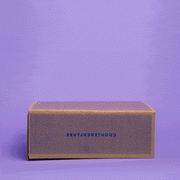
Genetics x Environment x Management

This latest GEM is a natural-sundried coffee from Finca Toldopamba, a stunning second-generation farm that also serves as headquarters for Toldopamba’s export operations. The farm serves as a demonstration plot for their network of growers, featuring variety-specific plots and state-of-the-art processing equipment, like the coffee cherry sorter used to elevate the consistency and quality of this lot. This GEM has a cherry cordial sweetness with red wine-grape complexity and a syrupy mouthfeel.




GEMs embody innovation. Sourced from producers who push the boundaries of coffee production, these unique coffees are exclusively reserved for our most coffee-driven clients: wholesale customers. The GEM line uplifts relationships to unlock the full potential of coffee, one exceptional cup at a time.
FIND A GEM RETAILER





